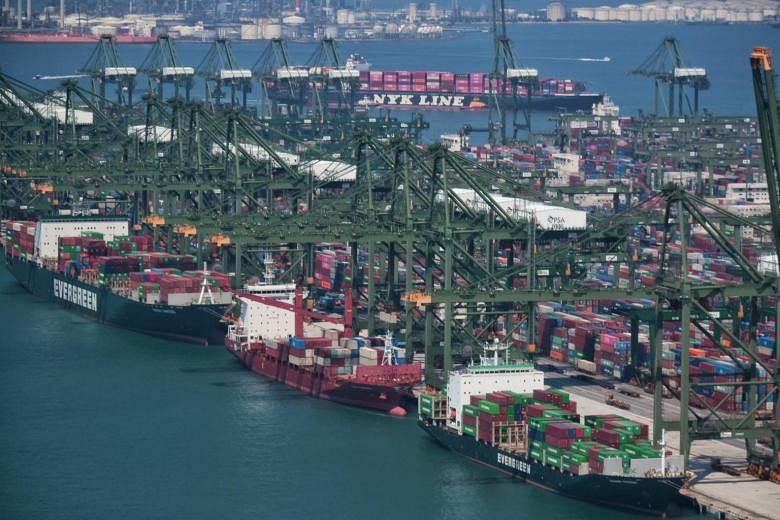SINGAPORE - Singapore's trade flows, the life and blood of its manufacturing sector, held up relatively well amid the global and regional supply chain disruptions wrought by the pandemic, the Monetary Authority of Singapore (MAS) said on Thursday (Oct 28).
Strict Covid-related restrictions implemented mostly by some Asian countries in recent months have resulted in congestion at ports, delaying shipments and boosting freight costs worldwide.
But Singapore's relatively resilient trade performance suggests that it has not been materially affected by the disruptions, said MAS.
Within manufacturing, which contributes about a quarter of gross domestic product here, electronics exports in particular have been a pillar of strength since last year amid strong global demand for goods such as mobile phones and computers.
"The relatively upstream nature of Singapore's production, such as of semiconductors, is an important reason why domestic manufacturers are less affected by supply bottlenecks," MAS said in its macroeconomic review report.
"Sources of imports of intermediate and consumption goods are also generally well-diversified, thus ensuring the resilience of domestic supply against external shocks," it noted.
The non-oil retained imports (Nori) fell by 1.5 per cent in 2020 and 0.1 per cent in the first three quarters of 2021. Still, Nori of intermediate goods posted robust growth in the first half of 2020 at the height of the pandemic, while Nori of non-intermediate goods, such as consumption and capital goods for final demand, have picked up in recent quarters.
The manufacturing PMI supplier's delivery-time index for manufacturers in Singapore has also been relatively stable, in contrast to the delays recorded in other Asian economies.
In addition, Singapore's sources of imports of intermediate goods are well-diversified, as shown by the Herfindahl-Hirschman index measuring the geographic concentration of sourcing.
This suggests that a broader range of intermediate suppliers can be drawn upon in the event of a disruption.
"On the whole, domestic manufacturers have not been significantly affected by supply constraints thus far, although some firms have experienced intermittent delays in the shipments of raw material supplies and higher freight costs due to port congestion and a global shortage of vessels," MAS said.


